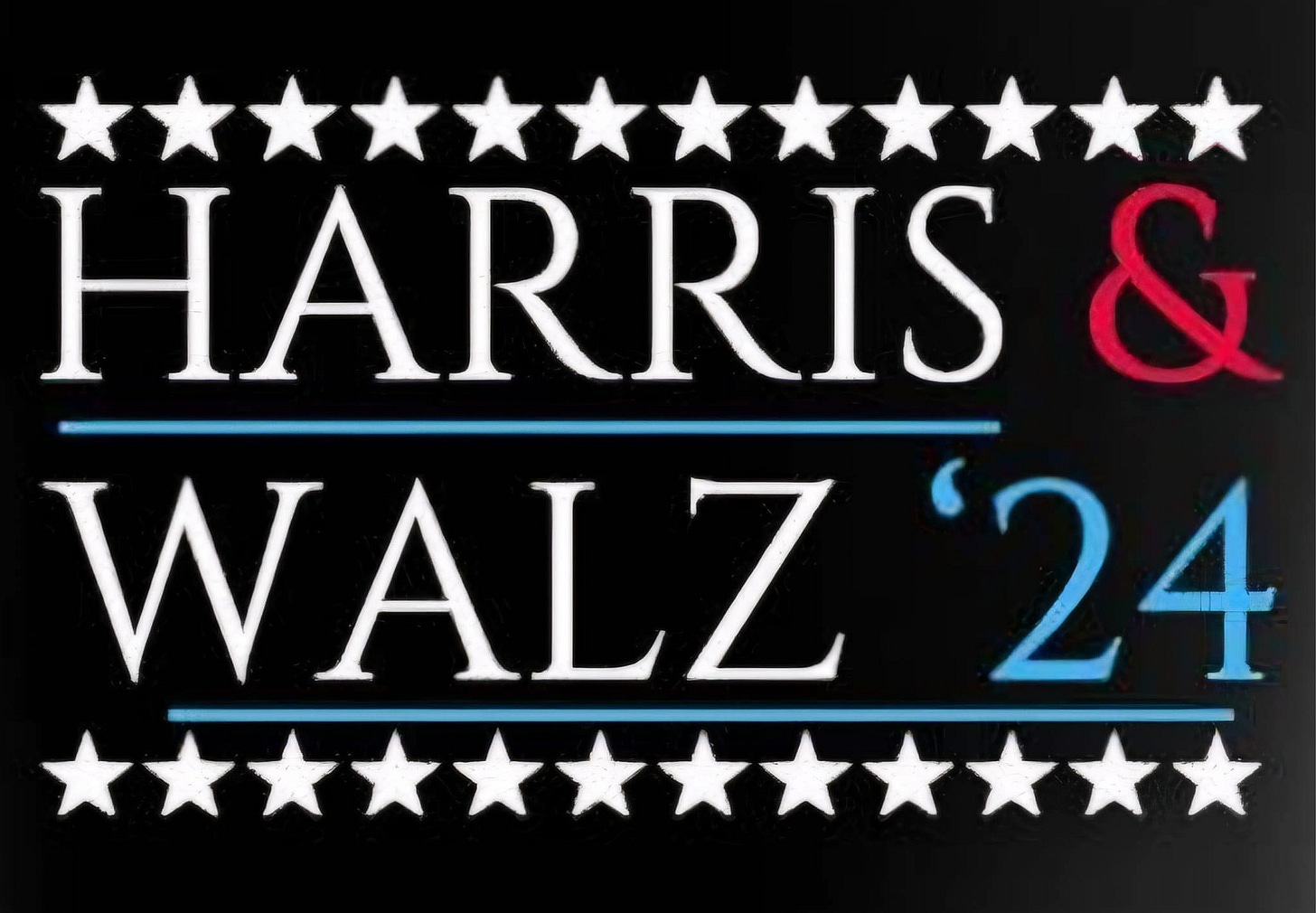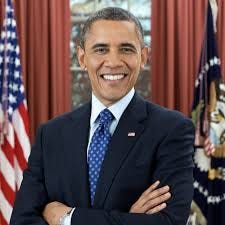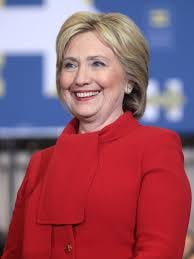Today In Black History: Former President Barack Hussein Obama II
A Short Narrative of America's First Black President
Issue #706 Today In Black History, Tuesday, August 20, 2024
Did you know you can listen to each “We Are Speaking” post on the Substack App? Download the app!
Help us to reach our August 2024 goals: +250 total new subscribers, including +100 new paid subscribers:
Please share and subscribe to help us grow our publication.
Who are your “Fav Five” who would enjoy “We Are Speaking?” Send them the link!
If you like us, REALLY like us, please click the “Like” button at the end of this post!
We appreciate your support!
When we vote, we WIN!
Make sure to check your voter registration!
Today’s Black History WOW!
Today is Day Two of the 2024 Democratic National Convention.
Day One was epic—all six hours of it! If you missed it, you can find it on YouTube or the official DNC2024 website.
Last night, the primary speakers were former Secretary of State Hillary Clinton and, of course, President Joe Biden.
Yesterday’s “Today In Black History” examined Hillary Clinton and her relationships with Black people.
Today In Black History: Former Secretary of State Hillary Rodham Clinton
Issue #705 Today In Black History, Monday, August 19, 2024
The primary speakers tonight will be President Barack Obama and Second Gentleman Doug Emhoff.
Here’s a quick refresher of POTUS44 and his historical significance, especially to Black America.
Born on August 4, 1961, in Honolulu, Hawaii, Barack Hussein Obama II’s diverse heritage set the stage for his complex identity. His father, Barack Obama Sr., was a Kenyan economist, and his mother, Stanley Ann Dunham, was a white anthropologist from Kansas. His father returned to Kenya, and his mother spent much time traveling for her job. His white grandparents primarily raised Obama.
Growing up, Obama faced the complexities of race and identity firsthand. His academic journey took him from Occidental College in Los Angeles to Columbia University in New York and eventually to Harvard Law School, where he became the first Black president of the prestigious Harvard Law Review. His early career as a community organizer in Chicago's South Side laid the groundwork for his political philosophy, emphasizing grassroots activism and the power of collective action.
Obama's political career began in the Illinois State Senate, where he represented the 13th district from 1997 to 2004. His keynote speech at the 2004 Democratic National Convention catapulted him onto the national stage, showcasing his oratory prowess and vision for a unified America. That same year, he was elected to the U.S. Senate, where he served until his presidential campaign in 2008.
The 2008 presidential election was a landmark moment in American history. Running on a platform of "Hope and Change," Obama galvanized a diverse coalition of voters, including young people, minorities, and disillusioned independents. His message of unity and progress resonated deeply, culminating in his historic victory on November 4, 2008.
Formidable challenges and significant accomplishments characterized Barack Obama's presidency (2009-2017). Upon taking office, he faced the daunting task of steering the nation through the Great Recession, which he addressed with the American Recovery and Reinvestment Act of 2009. His administration also saw the passage of landmark legislation, including the Affordable Care Act (ACA), which expanded healthcare access to millions of Americans.
Obama's foreign policy was marked by efforts to end the wars in Iraq and Afghanistan, the operation that led to the death of Osama bin Laden, and the negotiation of the Iran nuclear deal.
President Obama also made strides in environmental policy, notably with the Paris Agreement on climate change.
Obama's presidency was particularly significant for Black Americans. His election was a powerful symbol of racial progress, instilling a sense of pride and possibility. However, it also brought heightened expectations and scrutiny. Many Black communities hoped his presidency would directly address systemic inequalities, from criminal justice reform to economic disparities.
Obama's approach was often criticized for being cautious, as he sought to govern as a president for all Americans while navigating the racial dynamics of the country. Nevertheless, he addressed Black issues through various initiatives, such as the My Brother’s Keeper program, which aimed to close opportunity gaps for young men of color. His speeches following incidents of racial violence, including the shooting of Trayvon Martin and the Charleston church massacre, were poignant calls for unity and justice.
President Obama only had the backing of a Democratic House and Democratic Senate for the first two years of his 8-year, 2-term presidency when he passed his signature program, the Affordable Care Act (the ACA or “Obama Care”).
Racist Americans and the Republican Congress fought him during his entire presidency. Yet, President Obama was also able to repair the international reputation of America after the disastrous George W. Bush years.
Barack Obama's influence extends far beyond his presidency. His post-presidential work through the Obama Foundation focuses on community leadership, civic engagement, and global initiatives. His best-selling memoirs, "Dreams from My Father" and "A Promised Land," offer insights into his journey and philosophy. With some of the funds he received from the sales of his books, he offered personal loans to his vice president, Joe Biden, to pay for the expensive treatment of Beau Biden’s alternative cancer treatments.
Today In Black History
In 1619, “twenty-odd” captured Africans arrived in Jamestown, Virginia, aboard a Dutch ship, becoming the first Blacks to be forcibly settled as enslaved laborers in the North American British colonies.
In 1830, Rev. Richard Allen chaired the first National Negro Convention.
In 1856, HBCU Wilberforce University was established in Wilberforce, Ohio.
In 1866, President Andrew Johnson issued Proclamation #157, declaring the “insurrection” in Texas over, officially ending the U.S. Civil War.
In 1908, the Congo Free State became the Belgian Congo.
In 1920, the 1st commercial U.S. radio station, 8MK (WWJ) of Detroit, began daily broadcasting.
In 1920, the American Professional Football Association was formed with indigenous Olympic Champion Jim Thorpe as its president. The Association later became the National Football League (NFL).
In 1939, the National Negro Bowling Association was organized in Detroit, Michigan, with Wynston Brown becoming its first president.
In 1960, the African nation of Senegal gained its independence from the Mali Federation.
In 1964, President Lyndon B. Johnson signed the $1B Equal Opportunity Act.
In 1993, Dr. David Satcher, a genetic researcher, was named the first Black Director of the Centers for Disease Control and Prevention (CDC).
In 2020, Kamala Harris accepted her nomination for vice president, becoming the 1st woman of color on a major party ticket, saying, “…there is no vaccine for racism.”
Our paid subscribers are encouraged to discuss this post in our W.A.S. Chat Community.
Join Pamela Hilliard Owens’s subscriber chat
Available in the Substack app and on the web
You are also welcome to view “We Are Speaking” in Substack Notes. You can also read other Substack publications without subscribing to them when you join Notes.








